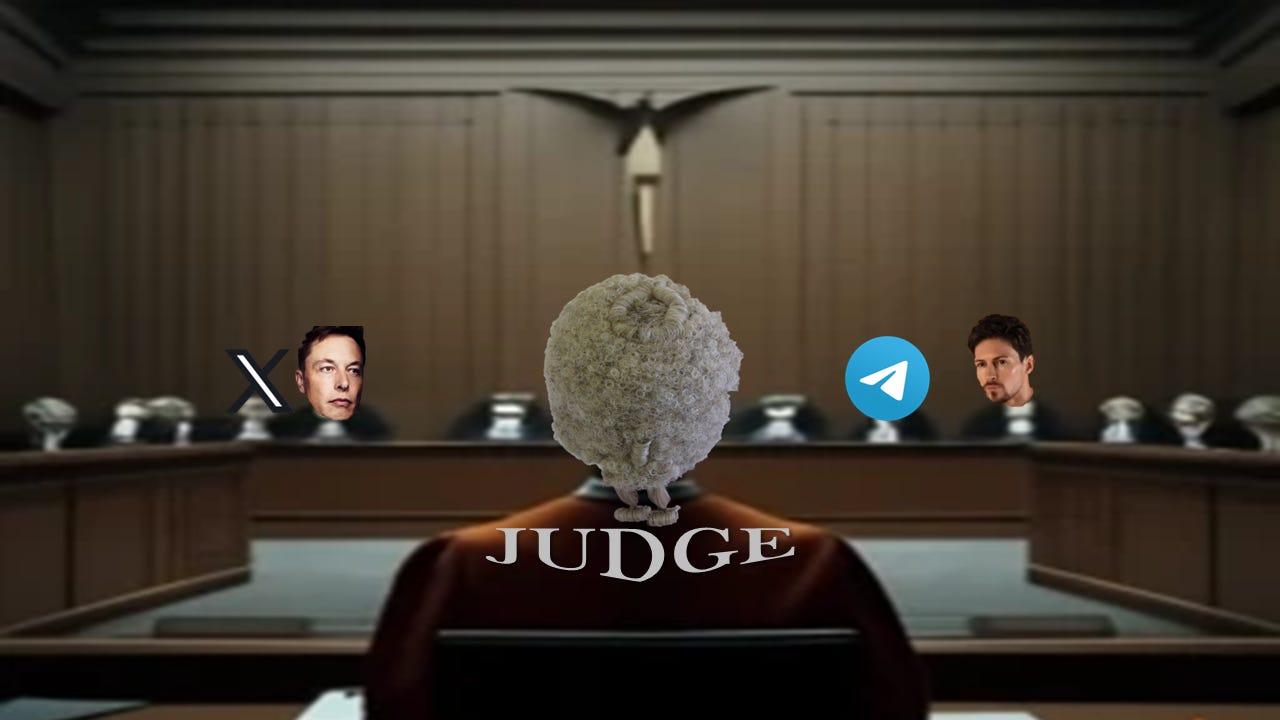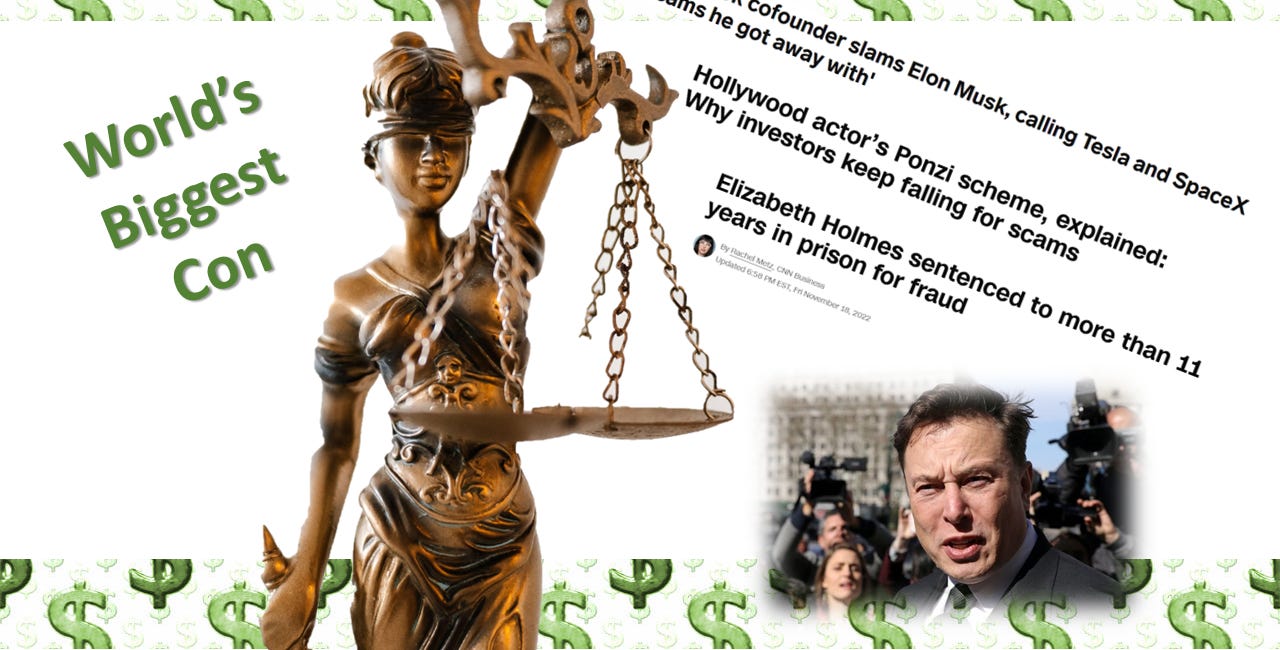Countries Start Taking Action against Social Media Platforms that Allow or Encourage Extremism
Is this the beginning of a global pushback?
Putting Elon Musk in his place
Just the other day, Brazil’s Supreme Court unanimously upheld a nationwide ban of X (Twitter) by a lower court. The ban came about after three years of investigations that focused on three categories of suspected violations:
1 - the propagation of fake news; 2 - the manipulation by organized groups of engagement on the social media platform; 3 - a conspiracy by individuals and groups involved in an attack on Brazil’s Congress in 2023.
The third allegation arose from an attack on the Brazilian government, similar to what occurred in the United States in 2021. In this case, the attack was a response to the electoral defeat of former president Jair Bolsonaro who, like former US President Donald Trump, spread election lies proclaiming fraud. Following the Brazilian election, a court found Bolsonaro guilty of abusing his power and misusing public media and prohibited him from running for office for eight years beginning in 2023.
After the assault on the government, the Brazilian Supreme Court ordered X to remove certain accounts, to which X reluctantly complied. The judge investigating Bolsonaro’s activities related to the election later ordered X to remove more accounts, but this time X owner Elon Musk refused.
The court imposed a fine of £16,000 (17,728 USD) per day for violating the order. Musk then publicly assailed the judge, posting on X: “One day, [@]Alexandre, this picture of you in prison will be real. Mark my words.” Attached to the post was an image of a figure wearing an orange jumpsuit standing in a jail cell.
Neither the judge nor the government took kindly to this threat, subsequently seizing X’s and Starlink’s financial assets in the country, determining that the two were essentially the same company. Moreover, the court demanded that Starlink suspend services that allowed people in the country access to X while violations of the court order against X continued. Starlink declined to do so.
At the time of the asset freeze, X and Starlink had accrued around $3 million in fines for continuing to violate the court’s orders. X worsened the situation by removing its legal representative in the country. In Brazil, foreign companies are required to maintain a legal representative to operate legally.
Starlink representatives initially told Brazil’s communication regulator that it would not block X until the court rescinded its “illegal” order against X. In response, the government threatened to seize Starlink’s physical equipment in the country, including ground stations and other infrastructure. Musk retorted, “This evil tyrant is a disgrace to judges’ robes.” Nevertheless, the company changed course and immediately complied. Musk hasn’t said or posted anything since.
Federal solicitor general, Jorge Messias told the media:
We cannot live in a society in which billionaires domiciled abroad have control of social networks and put themselves in a position to violate the rule of law, failing to comply with court orders and threatening our authorities. Social peace is non-negotiable.
The ban affects roughly 22 million users of X, comprising nearly 7% of its total user-base. Musk’s platform may not survive if the ban lasts for long. Already, the company has lost around 75% of its value, leading some of its most prominent investors to declare Musk the cause of a “tremendous amount of wealth destruction.” For example, Jack Dorsey, Twitter’s founder and one of the largest shareholders in X, has lost over $720 million since Musk’s takeover. In total, Musk has cost investors roughly $24 billion in lost capital.
Musk has blinked once already. What happens next remains to be seen.
Telegram CEO arrested
Sometime around August 24, Paris authorities arrested the CEO and founder of Telegram, Pavel Durov. After hours of questioning, he was released on 5 million euros’ bail. His release requires that he stay in France.
Telegram is a messaging application. It allows all of the typical functions of SMS and MMS—individual texting, group chats, sharing photos and other media, and so forth. It allows users to sync devices, meaning that these features can be used on any device associated with the account, including desktop computers.
Authorities accuse Durov of allowing his platform to be used for disseminating child sexual abuse material (CSAM), endorsing violence, and drug trafficking, and for refusing to comply with court orders investigating such activity.
He faces up to 10 years in prison and a £500,000 ($554,146) fine specifically for “complicity in managing an online platform to allow illicit transactions by an organized group,” if found guilty. Some reports indicate that at least ten other charges are pending. So far, he has not been formally charged. French law allows the government to restrain a suspect during the course of a criminal inquiry.
Telegram headquarters in Dubai because Durov fled Russia some years back to avoid complying with court orders there. The platform has a widespread reputation for resisting efforts by law enforcement to investigate crimes facilitated by the use of the platform. Rebecca Weiner, the New York City Police Department’s (NYPD) deputy commissioner of intelligence and counterterror once stated that Telegram is “a center of gravity for a wide range of extremist content” and repeatedly shows an “unwillingness to work with law enforcement.”
On its website, the company brags about this, writing that it does not respond to “illegal activity in private or group chats, ‘even if reported by a user’.” It further notes, “we have disclosed 0 bytes of user data to third parties, including governments.”
In an interview in 2021 with disgraced Fox personality Tucker Carlson, Durov said that Telegram ignores law enforcement demands that are not “in line with our values of freedom of speech and protecting people’s private correspondence.” Indeed, part of what prompted his arrest included his refusal to respond to claims about abusive content involving children made by the US-based National Center for Missing & Exploited Children (NCMEC), the Canadian Centre for Child Protection and the Internet Watch Foundation in the UK.
Telegram has also been used by a variety of violent or pro-violence groups, such as the Russian mercenary Wagner Group, a terrorist organization called the Terrogram collective, loosely associated white supremacist organizations like the Accelerationists and Active Clubs, the American seditionist Proud Boys, and white nationalist groups like Patriot Front, among others.
Timothy Koskie, a Postdoctoral researcher at the University of Sydney, notes that:
[If Durov is] successfully prosecuted, it could lay the groundwork for France to take wider actions against not only tech platforms, but also their owners. It could also embolden nations around the world—in the West and beyond—to undertake their own investigations.
How high of a price is the public willing to pay for ‘free speech’?
How to regulate speech on these platforms comes with obvious complications related to freedom. Who would do the regulating? What content would be considered subject to regulation? These are often the questions asked by skeptics that any regulation is legitimate or proper.
Assuming that any regulation violates the principles of free speech, however, begs the question as to what price people are willing to pay for such unfettered freedom. Curiously, it seems that those who most vociferously oppose any restrictions are the same people whose speech comprises threats of or calls to violence, disseminating provably false claims, and other destructive types. In many contexts, these kinds of speech already do come with legal consequences, so the notion of imposing upon them further is not unprecedented.
Wherever one falls on the issue, the evidence is abundantly clear. This kind of speech—particularly in the age of social media and the internet—leads to all kinds of disasters, including in the form of responses to calls for violence with actual violence, or through poor behavioral choices made under the influence of misinformation.
Societies are faced with deciding whether this is a price they are willing to pay. They must decide whether the “marketplace of ideas” really does bring a net benefit to the public. As of right now, that principle seems open to question.
***
For a detailed look at Elon Musk’s history of fraud and probable criminality, click below.
I am a Certified Forensic Computer Examiner, Certified Crime Analyst, Certified Fraud Examiner, and Certified Financial Crimes Investigator with a Juris Doctor and a Master’s degree in history. I spent 10 years working in the New York State Division of Criminal Justice as Senior Analyst and was a firefighter before that.
Today I work both in the United States and Nepal, and I currently run a non-profit that uses mobile applications and other technologies to create Early Alert Systems for natural disasters for people living in remote or poor areas. In addition, I teach Tibetan history and culture, and courses on the environmental issues of the Himalayas both in Nepal and on the Tibetan plateau. For more content, head over to my Medium page.





